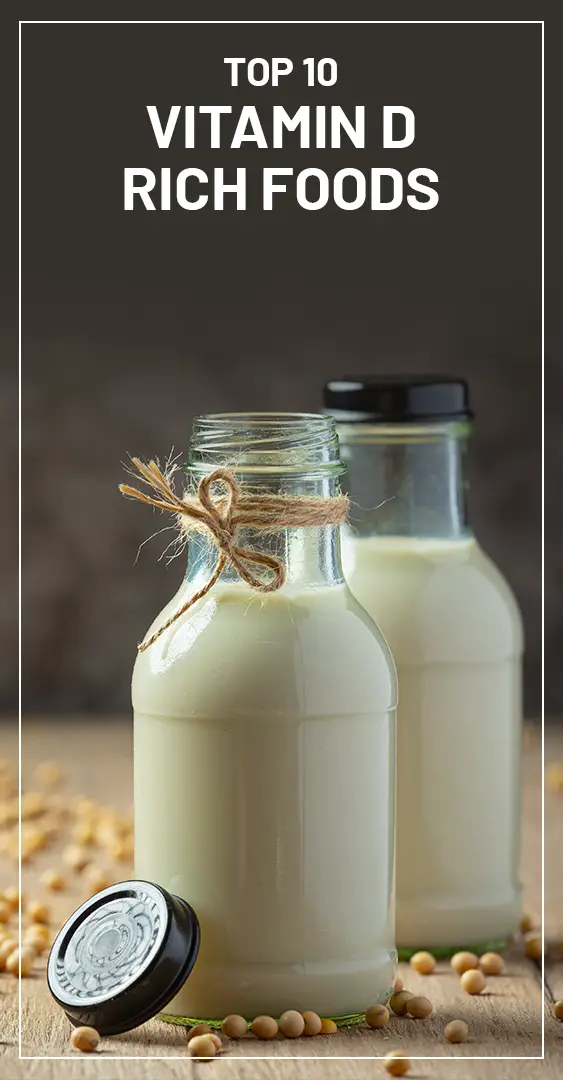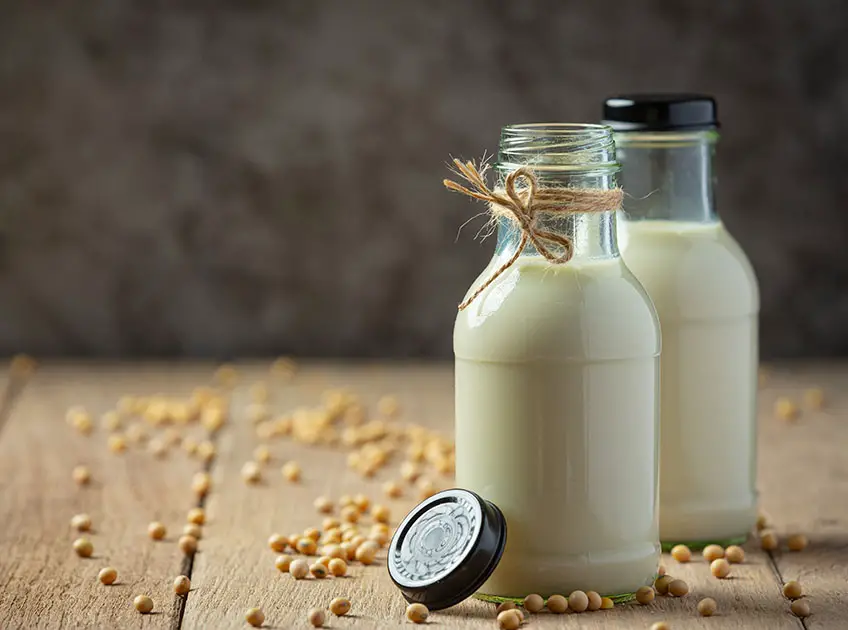
Important: This article is for informational purposes only. Please read our full disclaimer for more details.
Vitamin D is essential for strong bones and teeth, and it plays a role in many other body functions. Your body needs vitamin D to absorb calcium. Calcium is necessary for healthy bones, muscles, and nerves.
Most people get the vitamin D they need from exposure to sunlight. However, some people may not get enough vitamin D from sunlight because they have dark skin or always wear sunscreen when they are outdoors. People who don’t get enough sun exposure may need to take a supplement or eat foods that are rich in vitamin D.
Top 10 Vitamin D Rich Foods
1. Fatty Fish
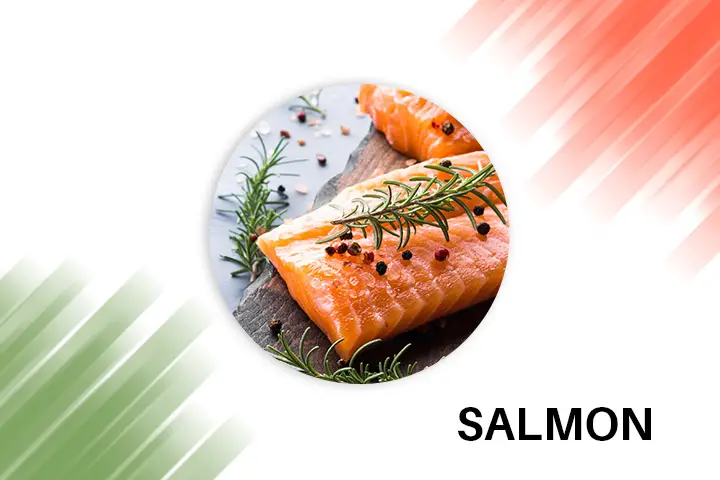
Fatty fish such as salmon, mackerel, herring, and sardines are rich in vitamin D. Salmon and mackerel are especially rich sources of the nutrient.
[ Recommended: The 10 Best Foods To Eat With PCOS ]
2. Eggs
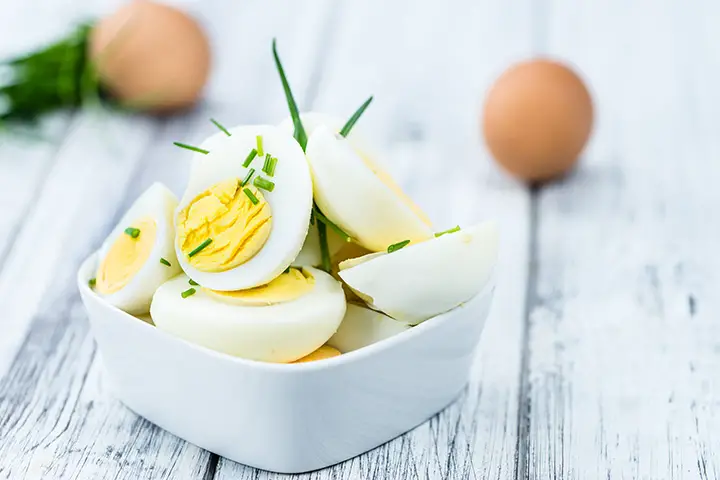
Eggs contain vitamin D, with one whole egg providing approximately 20% of your daily needs. Egg yolks have much more vitamin D than the whites do, so you can get even more of this nutrient by eating eggs that haven’t been separated.
[ Recommended: Top 10 Foods High in Omega-7 ]
3. Mushrooms
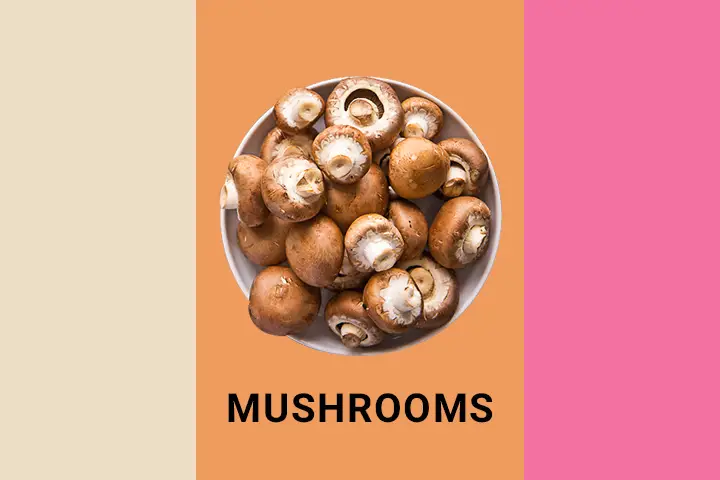
Some types of mushrooms actually produce their own vitamin D when they’re exposed to sunlight or other ultraviolet light sources. When buying mushrooms, be sure to choose those that have been exposed to UV light as these will contain more of this beneficial nutrient.
[ Recommended: Top 10 Foods Rich In Omega 3 Fatty Acids ]
4. Soy Milk

Regular soy milk is a good source of vitamin D, although it may not contain as much vitamin D as fortified products made from cow’s milk. If you don’t drink cow’s milk, but you do enjoy soy milk, be sure to choose a brand that is either fortified or made from organic soybeans.
[ Recommended: 10 Best Foods With Omega-9 Fatty Acids ]
5. Orange Juice
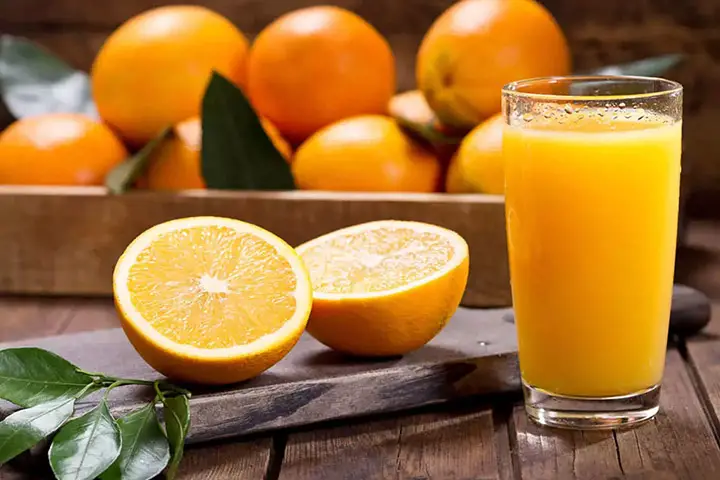
In addition to being rich in vitamin C, orange juice also contains some vitamin D. This means that you can get some of the nutrients you need by simply drinking your breakfast instead of eating it!
[ Recommended: Top 10 Foods High in Flavonoids ]
6. Dairy Products

Many dairy products are fortified with vitamin D, including yogurt and chocolate milk. You can also find other types of dairy-based beverages that have added vitamin D such as kefir or rice milk fortified with this nutrient. However, keep in mind that cow’s milk itself doesn’t contain much vitamin D unless it is fortified.
[ Recommended: Top 10 Foods High in Vitamin K ]
7. Cheese
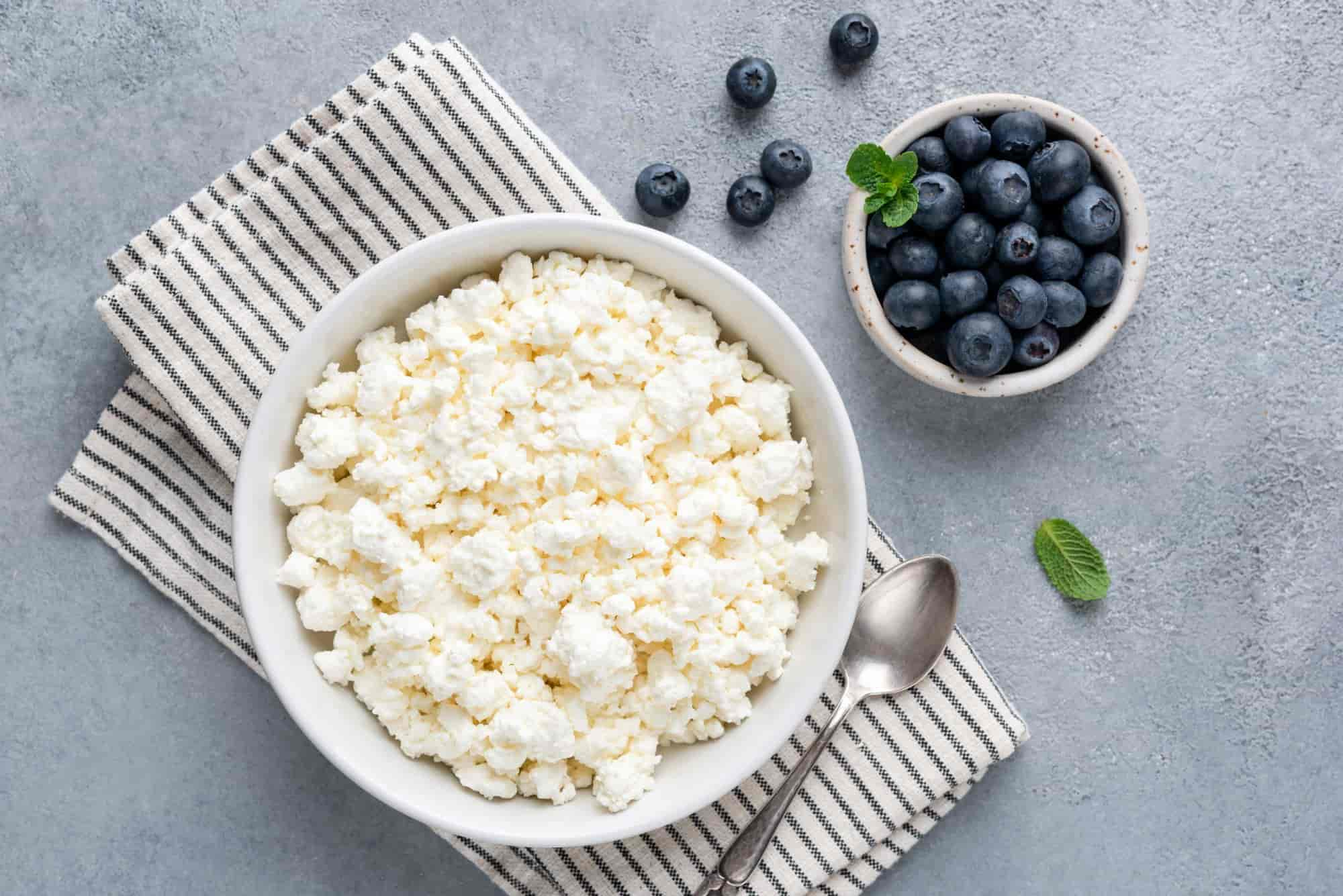
Cheese can be a good source of vitamin D if it is made from cow’s milk that has been fortified with the nutrient. Some types of cheese are also produced using UV-exposed mushrooms, which means they will also provide some extra vitamin D to your diet.
[ Recommended: Top 10 Foods High in Glutamine ]
8. Breakfast Cereal
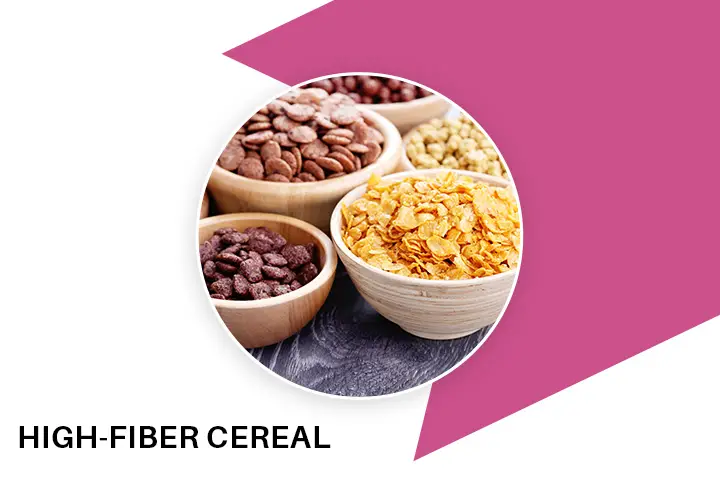
If you’re looking for foods rich in vitamin D, then breakfast cereals may not seem like an obvious choice. However, many brands are fortified with this important nutrient and even products such as oatmeal may include added vitamins and minerals to boost their nutritional content. Just make sure that you choose a brand that contains 10% or more of your daily vitamin D needs per serving.
9. Beef Liver
Beef liver is an excellent source of vitamin D, with just one 3-ounce serving providing over 100% of your daily needs. While it’s not the most popular food choice, beef liver can be a delicious way to get more of this important nutrient into your diet.
10. Cod Liver Oil
Cod liver oil is perhaps the best source of vitamin D, with just one teaspoon providing over 400% of your daily needs. This oil is also rich in omega-3 fatty acids, making it a doubly nutritious choice. You can take cod liver oil as a supplement or add it to your food. It has a fairly strong taste, so it’s best to start with small amounts and gradually increase the amount you take as your body gets used to it.
These are just some of the foods that can help you boost your intake of this important nutrient. If you’re concerned about getting enough vitamin D, then talk to your doctor or a registered dietitian to see if supplements or foods rich in the nutrient are right for you.
Recommended Topics:
- Can You Take Biotin and Vitamin D Together?
- 9 Importance of Vitamin D for Children
- How Much Time It Takes To Digest Eggs
- 10 Healthy Foods to Gain Weight Fast
- 10 Best Foods For An Upset Stomach
- 10 Best Foods for IBS Symptoms
- Top 10 Foods Highest In Taurine
- 10 Foods High in Fatty Acids
- 10 Foods That Are High in Riboflavin
- 10 Best Foods To Eat When You Have ADHD
- 10 Foods That Boost Your Mental Health
- 10 Healthy Foods That Are High in Phosphorus
- 10 Healthy Foods to Boost Nitric Oxide
- 10 Foods That Are High in Vitamin B9
